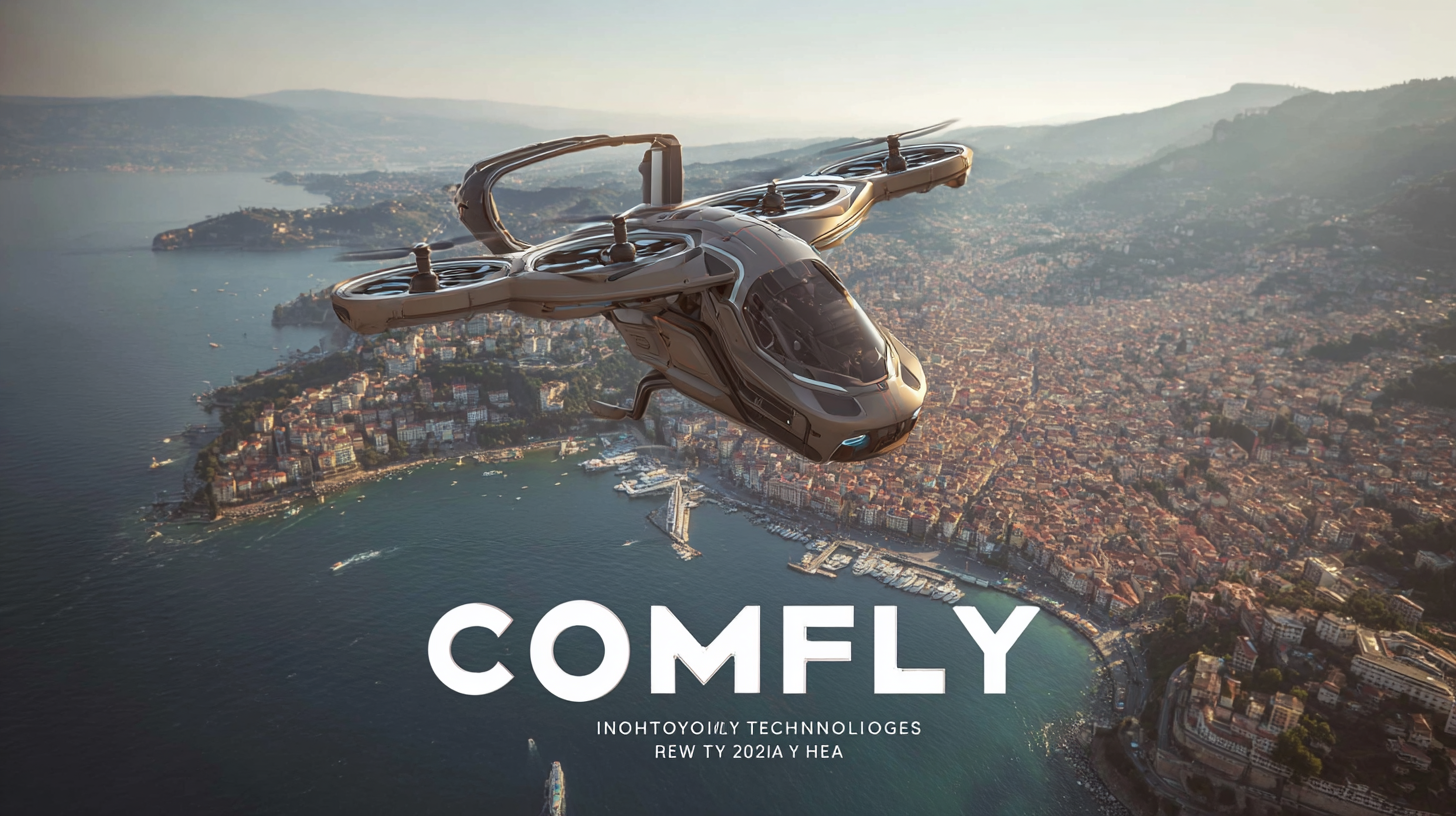Leave Your Message
As we venture into 2025, the convergence of innovative technologies and the rise of Comfly are set to redefine the landscape of various industries. According to recent reports by McKinsey, nearly 60% of organizations are adopting digital transformations to enhance operational efficiency and customer engagement, emphasizing the crucial role of digital integration in business strategies. Comfly, a leader in this new era, is leveraging cutting-edge advancements in artificial intelligence and the Internet of Things to streamline services and improve user experiences. Gartner forecasts that by 2025, 90% of enterprises will integrate AI capabilities into their customer interactions, paving the way for enhanced personalization and responsiveness. In this context, exploring the "digital + top types" framework highlights how Comfly is not just adapting to changes but spearheading innovations that will shape the future of work and connectivity.

The aviation industry is on the brink of a revolution, with innovative technologies set to transform air travel by 2025. According to a report by the IATA, advancements in sustainable aviation fuels (SAF) and electric propulsion systems are expected to reduce aviation's carbon emissions per passenger-kilometer by up to 80% over the next decade. This dramatic shift not only addresses environmental concerns but also enhances operational efficiency, making air travel more appealing to eco-conscious travelers.

Additionally, the integration of artificial intelligence (AI) and machine learning in airline operations is streamlining processes and improving customer service. A recent study from McKinsey & Company indicated that AI-driven solutions could save the airline industry up to $30 billion annually by optimizing flight routes and maintenance schedules. By 2025, we can anticipate a highly personalized travel experience as AI algorithms analyze passenger data to offer tailored recommendations and services, ensuring that every journey is more convenient and enjoyable than ever before.
In the evolving landscape of 2025, the emphasis on comfort, convenience, and connectivity is reshaping how we interact with technology in our daily lives. With innovations emerging rapidly, residents are experiencing a significant enhancement in their commuting options and daily routines. For instance, the new bus interchange in Buangkok offers seamless integration with surrounding amenities, making travel more convenient for local residents. This shift towards connected infrastructure highlights a critical trend: people are increasingly prioritizing convenience in their transportation choices.
Moreover, global initiatives, such as the enhancement of railway services in India, reflect a commitment to improving regional connectivity. Daily services like the Gwalior-Bhopal Express aim to make travel not just easier, but also more reliable, ultimately fueling economic growth. As consumer demand drives advancements in various sectors, from transportation to smart technologies, it’s evident that the fusion of comfort and connectivity is becoming a top priority. This trend also extends to connected devices, which play an essential role in creating smart environments that cater to the needs of modern individuals. As we move further into this era, the focus remains on crafting experiences that maximize convenience while fostering deeper connections across communities and technologies.
As we approach 2025, the aviation industry is witnessing a remarkable transformation driven by artificial intelligence (AI) and big data. These innovative technologies are not just revolutionizing operations but are at the forefront of enhancing the passenger experience. Airlines are leveraging AI-powered chatbots to provide instant customer support, allowing travelers to resolve queries or change bookings effortlessly. This level of accessibility ensures a smoother journey from the initial planning stages to arrival at the destination.
Moreover, big data analytics plays a crucial role in personalizing the passenger experience. By analyzing vast amounts of data from customer interactions, preferences, and behaviors, airlines can tailor services to meet individual needs. For instance, personalized recommendations for in-flight entertainment or dining options based on previous choices create a more enjoyable and customized travel experience. Additionally, real-time data analysis helps airlines optimize flight schedules and improve on-time performance, significantly enhancing customer satisfaction. As we embrace these advancements, the future of air travel looks brighter, poised to deliver unparalleled comfort and efficiency.
The aviation industry is on the brink of transformation as sustainability takes center stage, fueled by innovative materials and practices. In recent years, manufacturers and airlines have begun to embrace eco-friendly alternatives, moving away from traditional aviation materials like aluminum and jet fuel. Biocomposites, for instance, made from natural fibers and bio-resins, are gaining traction for their lightweight properties and reduced carbon footprint. These materials not only enhance fuel efficiency but also minimize the environmental impact of production processes.
Moreover, advancements in manufacturing technologies, such as 3D printing and nanotechnology, are paving the way for more sustainable aviation practices. These innovations allow for the creation of complex structures with less waste and energy consumption. Additionally, the implementation of green manufacturing techniques ensures that the production of aircraft components aligns with sustainability goals. As the industry shifts towards a circular economy, the focus on recycling and reusing materials is becoming crucial, promoting a more responsible approach to resource management within aviation. The rise of these innovative technologies signifies a commitment to creating a greener future in the skies.

As the airline market continues to flourish, projected to reach a staggering $436.7 billion by 2032, travelers are on the cusp of experiencing a transformation in their journey, largely driven by innovative flight technologies. With advancements in personalized services, airlines are beginning to recognize the immense potential these technologies have in enhancing the travel experience. This paradigm shift in the way airlines cater to individual preferences is set to reshape how passengers interact with their travel providers.
For travelers looking to make the most of these advanced flight technologies, embracing personalization is key. From tailored flight options to customized in-flight experiences, the capabilities are expanding every day. Airlines are exploring ways to gather data and feedback to refine their offerings, striving to craft unique journeys based on individual traveler needs. However, the transition to full personalization remains a gradual process for many suppliers, often hindered by the complexities of implementation. In the meantime, travelers can harness the power of these emerging technologies by staying informed and proactive in seeking opportunities that align with their preferences.
| Technology | Description | Traveler Benefit | Availability |
|---|---|---|---|
| Biometric Check-In | Facial recognition technology for seamless check-in and boarding. | Reduced wait times, enhanced security. | Widely implemented by major airports. |
| In-Flight Connectivity | High-speed internet access onboard flights. | Allows productivity and entertainment while flying. | Available on most international flights. |
| Eco-Friendly Aircraft | Aircraft designed with sustainable materials and lower emissions. | Contributes to greener travel options. | Expected rollout by 2025. |
| AI-Powered Customer Support | Chatbots and virtual assistants for immediate assistance. | Quick resolutions for traveler inquiries. | Currently being integrated across various platforms. |
| Personalized Travel Apps | Mobile applications offering tailored travel experiences. | Enhances user experience through personalization. | Available through app stores. |
